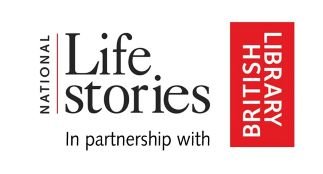
Kasel Kundola
Kasel Kundola was born in Birmingham (UK) to a Sikh father and an Irish mother
Part of the external The British Library oral history collection
About
Kasel Kundola was born in Birmingham (UK), to a Sikh father and an Irish mother. He remembers being confused about his identity as a child, but as an adult identifying as a British Asian.
Kasel Kundola was interviewed in 1998 by Pramod Morjaria for the Millennium Memory Bank, the largest recording project in the history of British radio. It ran from 1998 to 1999, capturing the pulse of the century through the voices of thousands of people from all walks of life. More than 5,000 interviews were recorded with people from all over the United Kingdom; extracts were used in the radio programme series The Century Speaks and the full interviews are archived at the British Library under collection reference number C900. Kasel Kundola's interview is British Library reference C900/00024, © BBC.
Listen to Kasel talking about his identity as a British Asian.
Interview conducted by Pramod Morjaria, 1998.
KK: Well, the identity I give myself now is British Asian. But as I was growing up, I wasn't very sure how to define myself. I suppose I always identified with Asian, the term Asian, a lot more, because my family were always around. My dad's side of the family, the Asian side of the family, huge functions, weddings, going to the temple quite a lot, so it was always something that I was exposed to. But I mean, there was always perhaps that feeling that I wasn't completely Asian, because my mum was white, she was Irish. So now probably more identify as a British Asian.
PM: What does being British Asian mean to you?
KK: What it means, it means having all the roots and the depth of culture that my parents and other Asian parents have brought over from India. The culture, whether it's just, you know, the music, the films, the fashion, the language. But also, some of the traditions as well. It's having that and knowing that, and in a way respecting that. But also, at the same time, well, you...we are...as young people, are born and brought up in Britain, so it's having that British culture as well, but having a deeper understanding beyond that for Asian culture too.
PM: You mentioned right at the start that when you were growing up you perhaps wasn't sure as to who you were or what identity you gave yourself. Was that entire...was that down to because you've got your dad who's Sikh, and your mum who's Irish?
KK: Yeah. Well, because the main body of family that I saw were my dad's side of the family who, you know, you've got full Asian kids, my cousins were Asian with a...both Asian parents, so I obviously could see from the outset that I was different, that my mum was white. And to a certain extent she was probably treated slightly differently because of that. On the other side, I had my mum's family who were Irish, had come over from Ireland, and I had quite a lot of cousins on that side. So there's always that way that I would step out of Asian culture, go and see the family, or they'd come over and see us. And I had this sort of dual culture going on. And I wasn't really sure which sure...which side I fitted into. And obviously having a white Irish mother, I didn't get to grips with the language that early, you know, Punjabi language. So that was almost exclusionary when you had other families coming around speaking Punjabi. You could pick up bits and pieces, but you just felt, well, I'm not completely part of this. But it's something that I just grew into, you know, at 9, 10, sort of started picking it all up.
PM: When you were younger then, did it...did this sort of dual identity, dual culture thing, did it manifest itself in any negative ways particularly? I mean, you know, did it lead to any sort of conflicts?
KK: Well, it is slightly confusing when you're young as well, because obviously, you know, half-Indian, half-Irish. On one hand, there is that feeling, because as a child, obviously you're very sensitive, and as a child, I suppose I was quite sensitive where I'd say, okay, so I don't exactly fit in here with my family, but, you know, they're great people nonetheless, but there's just...I'm clearly different. And then there's a whole business of when you're outside the family, you are seen as an Asian because of the colour of your skin and the way you are, and indeed, the family that you're from. So I suppose there was that slightly element...that was that...there was that element of encountering racism. So it's like, blimey, this is ridiculous, I'm stuck between a rock and a hard place. That was perhaps the main negative point. But I've always, since I was young, taken on everything from both cultures, because the whole...I think the whole point of being in a situation like that, for me, was to learn as much as possible. And I, you know, know loads about Ireland, I know loads about India, I can speak the language. And it's...it has sort of manifested itself quite positively.
For all permissions requests for audio and video clips and their transcriptions from external collections, please contact the original project or organization.
Entry credit
Laura Owen
